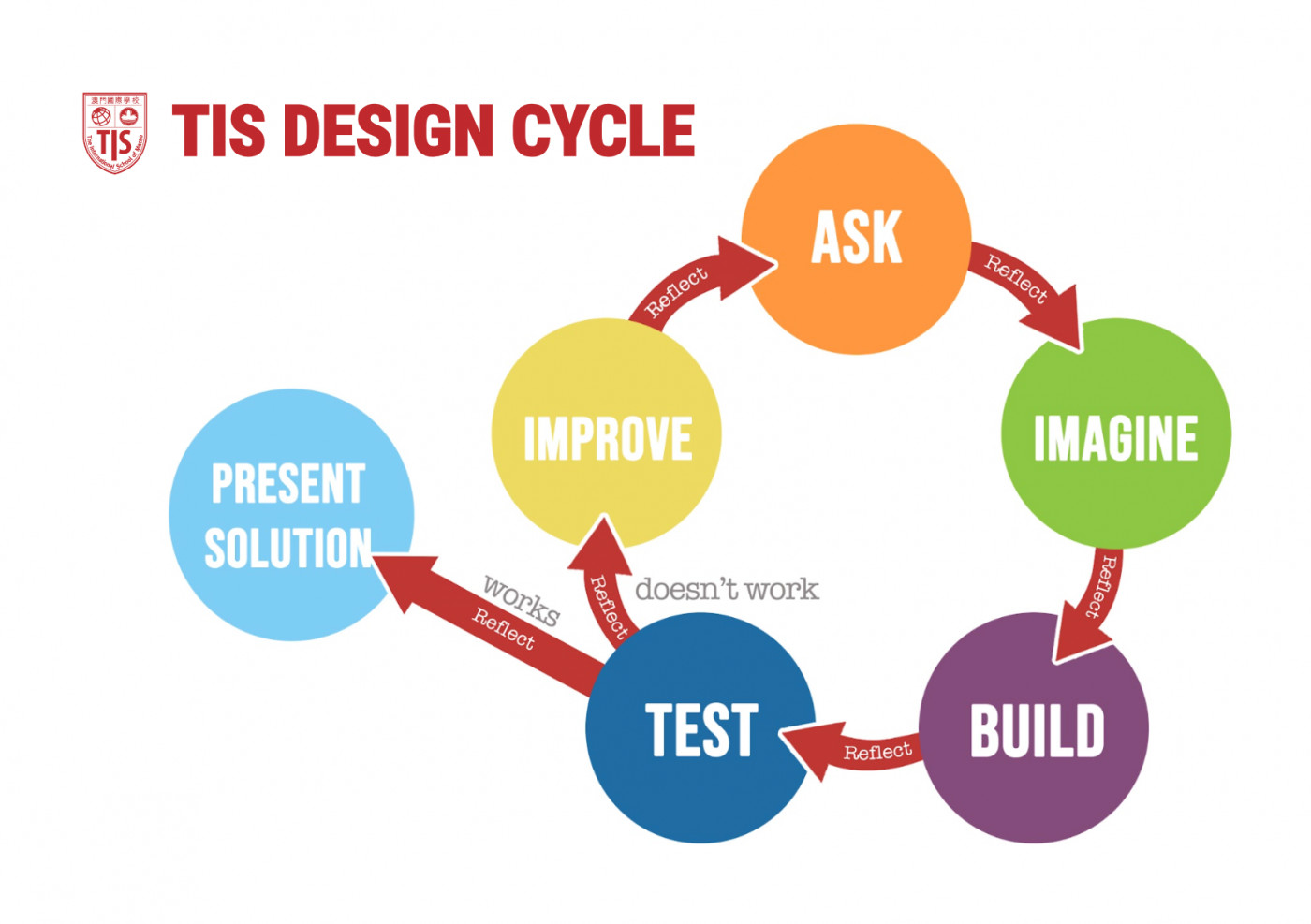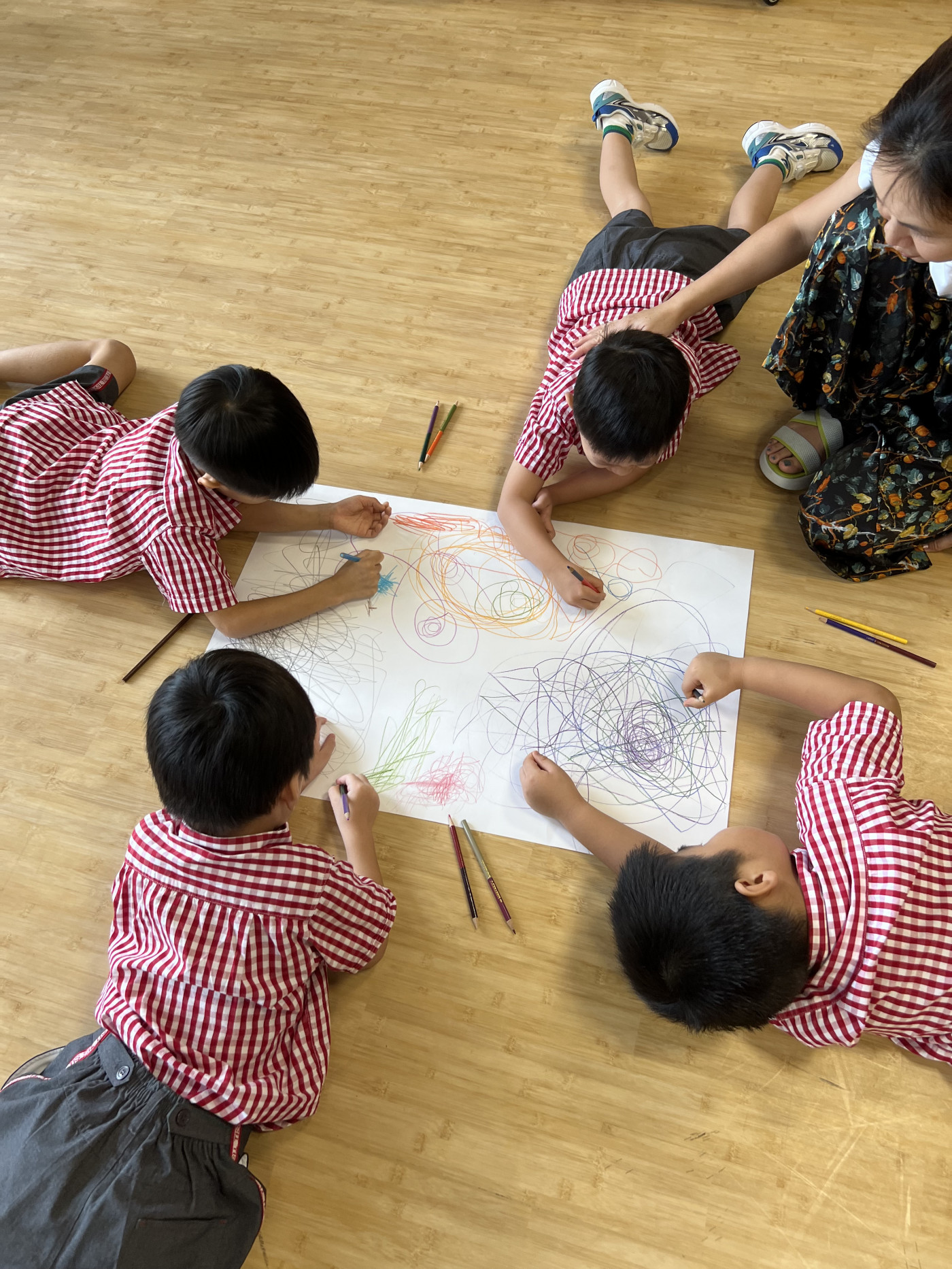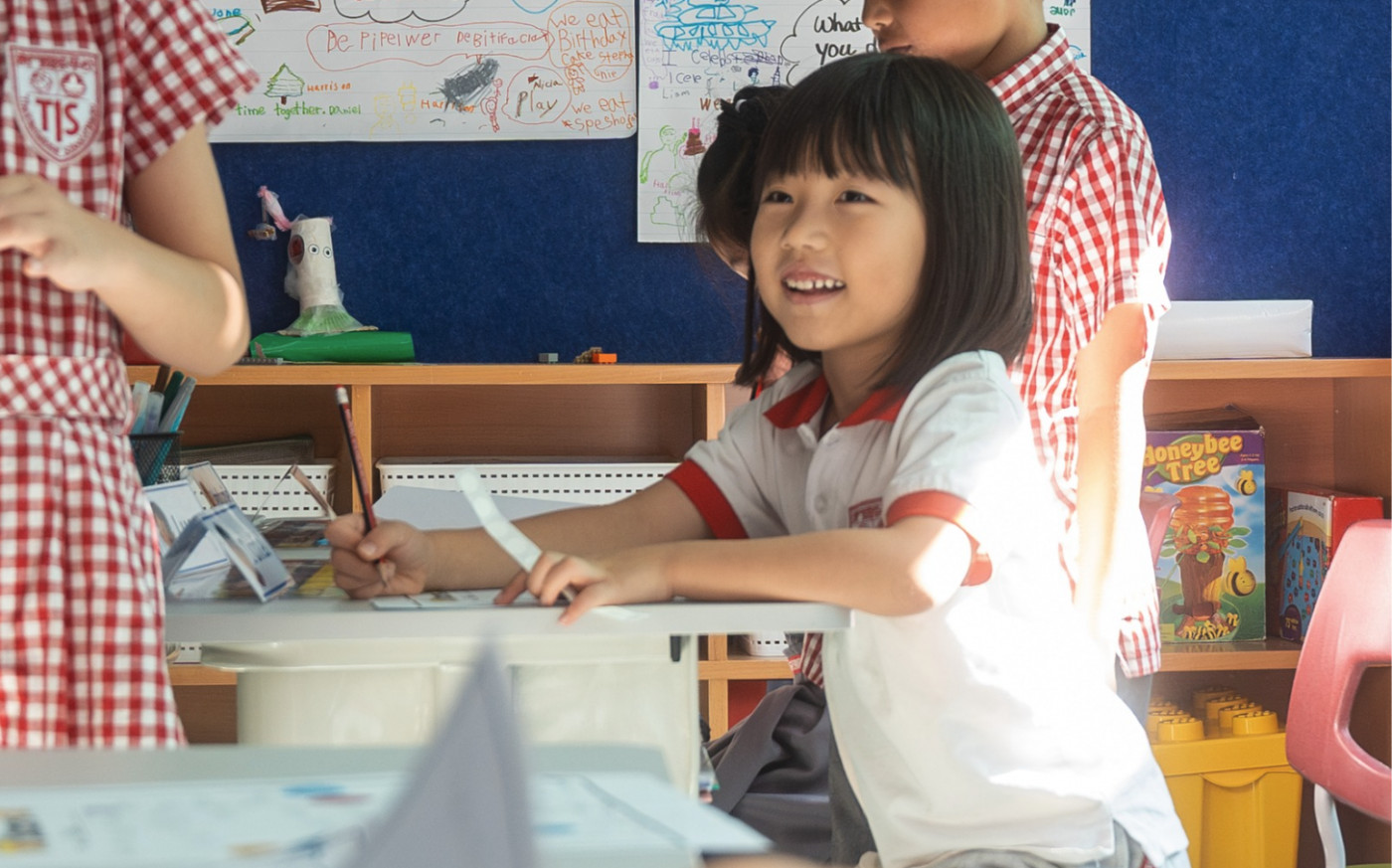
Failing Forward: How emotional safety fuels inquiry and growth in the PYP
At TIS, we believe emotional safety is not a soft add-on to education — it is the foundation upon which true learning rests. When children feel safe to take risks, they don’t just absorb knowledge, they grow into curious, reflective, and confident human beings.
This is why wellbeing is not separate from learning in the PYP at TIS. It is woven into the very fabric of our classrooms, hallways, and assemblies. Emotional safety allows our students to embrace the heart of the PYP: to inquire bravely, to act with agency, to reflect deeply, and to grow through challenges.
In Grade 4, for example, students independently apply the TIS design cycle (see image below) to create artefacts that represent their identity. Through asking, imagining, reflecting, and improving on their prototypes, they discover that growth comes not from getting it right the first time, but from the courage to keep trying — a true exercise in agency and self-efficacy. Along the way, they draw upon the Approaches to Learning skills that lie at the heart of the PYP — social, self-management, thinking, communication, and research skills — using them not to chase perfection, but to refine their process, collaborate with others, and persevere through complexity.

In Music, our SK students show open-mindedness as they listen to and interact with music. They use rhythm and melody not only to play, but to express their feelings — learning that inquiry can be emotional as well as intellectual, and that reflection helps them make sense of their own experiences.
We celebrate learners for who they are becoming — helping them recognize that the true measure of success is growth.
And in assemblies, we shine a spotlight not on perfection, but on perseverance and progress. We celebrate learners for who they are becoming — helping them recognize that the true measure of success is growth. This builds the mindset that every challenge is an opportunity to learn.
As a PYP Coordinator, who oversees the integration of an inquiry-based approach to teaching and learning, I see this unfold across classrooms every day.





When children are given safe spaces to take risks, reflect, and grow, the PYP philosophy comes to life in powerful, visible ways — and students develop the confidence to take ownership of their learning journey.
It reminds me of Maslow’s hierarchy of needs, where safety and belonging form the base that allows individuals to reach self-actualization. In our context, emotional safety is what gives children the confidence to say, “I’m not afraid to be wrong. I’m not afraid to make mistakes.” That freedom — to wonder, to try, to fail, and to try again — is what slowly shapes a sense of identity. It all begins with curiosity: curiosity to know what we’re thinking, how we’re thinking, and who we’re becoming in the process.

While in other schools children may be taught to avoid "mistakes", at TIS we them as the very soil from which resilience and innovation grow. This approach prepares our students not just for tests and grades, but for the challenges and opportunities that await them in the world.
Emotional safety is not only a classroom value — it is a global competency. It equips our young people to face uncertainty with confidence, empathy, and courage. That’s why our school embraces a Sustainable Development Goal each year. This year, our focus on SDG#3 Good Health and Wellbeing reflects the student-centred culture we nurture at TIS, one where wellbeing is prioritized, and learning follows naturally. This belief isn’t just aspirational, it’s embedded in how we teach and learn everyday.

It is not a soft add-on—it’s a strategic foundation for inquiry, resilience, and growth. In the PYP at TIS, we treat wellbeing as essential to learning, not separate from it. The goal isn’t just to “know things,” but to develop the courage to try, reflect, and grow — a mindset shift with lifelong impact.
This prepares them for real-world complexity: revising work after feedback, navigating group dynamics, or presenting ideas to unfamiliar audiences. These moments build adaptability, confidence, and empathy — skills that extend far beyond the classroom.
It also honours identity and agency. Students aren’t passive recipients of knowledge: they are active participants in shaping who they’re becoming. That’s powerful.



